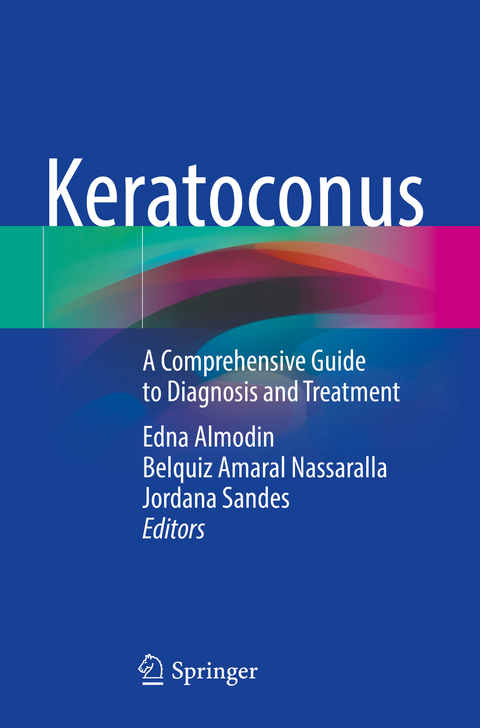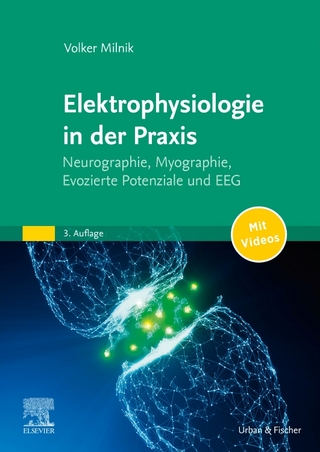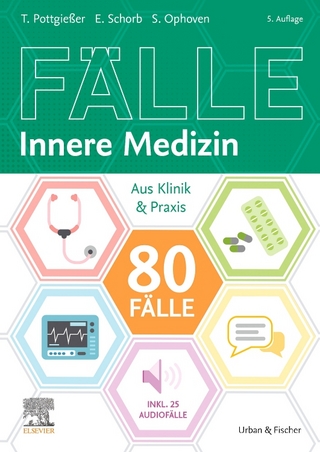
Keratoconus
Springer International Publishing (Verlag)
978-3-030-85363-1 (ISBN)
This book provides the reader deeply and updated information on keratoconus treatment. Written by experts from worldwide, the book presents clinical, genetic, metabolic and biomechanical aspects in the development of the disease, the proper intervention time, the imaging tests used for diagnosis and keratoconus monitoring, as well as details on new surgical procedures (as contact lenses and laser technologies) using modern methods with wide technological application. Two pioneers in the keratoconus treatment bring their valuable contribution in specific chapters.
Ophthalmologists will find a practical and useful approach of new technologies to get the best results for their patients. This book will really impact changes in the therapeutic conduct of corneal surgeons.
lt;b>Edna Almodim, MD is currently director of the Provision Eye Hospital of Maringá, PR, Brazil and the Brazilian Society of Cataract and Intraocular Implants general secretary and Member of the Brazilian Society of Cataract and Refractive Surgery Deliberative Council. She is a former president of Brazilian Society of Administration in Ophthalmology (SBAO) and the founder of the Umuarama Eye Bank. In 2019, she was elected president of the Brazilian Society of Ophthalmology. Dr. Almodin has a great experience in Ophthalmology, especially in the field of cataract surgery, refractive surgery, keratoconus, high myopia, and strabismus. She has been invited to speak and teach several national and international meetings.
Belquiz Amaral Nassaralla, BSc, MD, PhD has a Bachelor Degree in Biomedical Sciences (1980) and Licentiate Degree in Biology (1983), from the University of Brasilia. She holds a fellowship in Cornea and External Eye Diseases at the Hilton Rocha Institute (1991), fellowship in Oculoplastic Surgery at the Hilton Rocha Institute (1992), and a research fellowship in Cornea and Refractive Surgery at the University of Southern California / Doheny Eye Institute, USA (1994). In 2000, Dr. Nassaralla holds her Ph.D. in Ophthalmology from the Federal University of Minas Gerais. She has published several international peer-reviewed journal articles and 32 book or book chapters. She is a Consultant Ophthalmic Surgeon at the Goiania Eye Institute with sub-specialties in Cornea, Refractive Surgery, Cataract Surgery, External Eye Diseases and Plastic Eye Surgery. She has been invited to speak and teach several national and international meetings and has won awards for her contribution.
Jordana Sandes Barbosa, MD, PhD completed a cornea and external eye diseases fellowship at the Federal University of Goias (2010-2012) and received her specialist degree in ophthalmology from the Brazilian Medical Association (AMB), Brazilian Council of Ophthalmology (CBO). She holds her master's degree in Health Sciences at the Federal University of Goias (2014-2016) and her PhD in Health Sciences at the same institution (2017-2021). She is a preceptor member of the cornea department at the Federal University of Goias. Dr Jordana is co-director of the Bueno Medical Center Oftalmologia and also works as ophthalmologist at the Núcleo de Medicina Ocular. She has experience in the field of Ophthalmology with emphasis on cataracts, cornea, keratoconus and external eye diseases. Dr. Jordana is heavily involved in the practice and research of keratoconus management and has published several peer-reviewed articles in the field. She has been invited to speak and teach several national and international meetings.
Part I. Keratoconus diagnosis.- 1.Clinical presentation and evolution of keratoconus.- 2. Natural Progression of Keratoconus.- 3. Prospective Biomarkers in Keratoconus.- 4. The Role of Thyroid Gland Dysfunction in the Development of Keratoconus.- 5. Eye Rubbing and Keratoconus.- 6. Early diagnosis of keratoconus: When should one suspect?.- 7. Algorithms and other gears for keratoconus Diagnosis.- 8. Corneal Topography for keratoconus Diagnosis.- 9. Pentacam for Keratoconus Diagnosis.- 10. Galilei(TM) for Keratoconus Diagnosis.- 11. Corneal Biomechanics in Keratoconus Diagnosis.- 12. Corneal Tomography and Biomechanical Integration.- 13. What is new in contrast sensitivity for keratoconus diagnosis.- 14. How to Follow the Patient after Keratoconus Diagnosis.- 15. Assessing Keratoconus Progression.- 16. Controversies in Keratoconus Diagnosis.- 17. Artificial intelligence in keratoconus diagnosis.- Part II.Treatment.- 18. Preoperative Evaluation of Keratoconus.- 19. Keratoconus Treatment Flowchart.- 20. Drug Therapy in Keratoconus Patients.- 21. Step By Step in Performing Manifest Refraction and Tips in the Prescription of Glasses in Keratoconus Patients.- 22. Contact lenses in keratoconus - possibilities and flowchart.- 23. Soft Contact Lenses for Keratoconus. When to Indicate Them?.- 24. Rigid Gas Permeable Contact Lens Fitting in Keratoconus.- 25. Piggy Back With Contact Lenses for Keratoconus.- 26. Scleral and Mini Scleral Lenses for Patients With Keratoconus.- 27. What is new in contact lenses for keratoconus?.- 28. Contact Lens Fitting After Intracorneal Ring Segment Implantation.- 29. Contact lens fitting in Pellucid Marginal Degeneration.- 30. Contact Lens Fitting Following Corneal Graft Surgery.- 31. Corneal Cross-Linking: Indications and contraindications.- 32. Corneal Collagen CrosslinkingControversies.- 33. Intrastromal Cornealring Segments Implantation and Crosslinking: When and How?.- 34. Corneal Crosslinking Complications: How to Manage Them.- 35. Continued Long-Term Flattening After Corneal Crosslinking for Keratoconus.- 36. Corneal Cross-Linking: standard vs. accelerated protocols.- 37. Transepithelial Cross-linking.- 38. Cross-Linking in Ultra Thin Corneas.- 39.Corneal Cross-linking for Keratoconus in Childreen.- 40. Corneal Crosslinking in Down Syndrome Patients.- 41. The History of Ferrara Ring.- 42. Indications and contraindications.- 43. Ferrara Intrastromal Corneal Ring Segments Nomogram.- 44. Mediphacos Intrastromal Corneal Ring Segments Nomogram.- 45. Intracorneal ring segments implantation outcomes using two diferent manufactures' nomograms for keratoconus surgery.- 46. Refractive and Visual Outcomes After Intacs And Other Intrastromal cornealring segments implantation according to the literature.- 47. ICRS Surgical Planning: An Easy and Objective Way.- 48. Intrastromal Corneal Rings Types.- 49. Long-Arc Intrastromal Corneal Ring Segment.- 50. Asymmetric intrastromal corneal rings.- 51. New Designs Of Asymmetric Rings.- 52. Ferrara HM: A New intrastromal Corneal Ring Segment Associated to Photorefractive keratectomy to Correct Moderate to High Myopia.- 53. Manual technique (golden tips).- 54. Femtosecond laser-assisted technique. Peculiarities of the different types of Femtosecond lasers.- 55. Intrastromal Corneal Ring Segments After Corneal Graft Surgery.- 56. Postkeratoplasty astigmatism treatment by the association of Intrastromal Corneal Ring Segments (ICRS) and Photorefractive Keratectomy (PRK).- 57. Intra-stromal Corneal Ring and Crosslinking for Treatment of Post Refractive Surgery Ectasia.- 58. Intrastromal Corneal Ring in Pellucid Marginal Degeneration and Pellucid-Like Keratoconus.- 59. ISCRS implantation inKeratoconus Children.- 60. Intra Corneal Ring implantation for early keratoconus.- 61. Intrastromal corneal ring segment (ICRS) implant to refractive and visual outcomes.- 62. Intra Corneal Ring Segment implantation for advanced keratoconus.- 63. Extreme Corneal Remodeling Using Intrastromal Corneal Ring Segments.- 64. Intra stromal corneal ring and PRK.- 65. Intrastromal Ring and Crosslinking: when and how?: When and How?.- 66. Intrastromal rings and phakic lenses.- 67. Association of Keratoconus treatment and phacoemulsification.- 68. Intrastromal Corneal Ring and Toric IOL.- 69. INTRAOCULAR LENS POWER CALCULATION IN EYES WITH KERATOCONUS AND INTRACORNEAL RING SEGMENTS.- 70. Complications in intrastromal corneal Ring segments implantation.- 71. Refractive Lens Exchange with Small Aperture Intraocular Implants for Keratoconus.- 72. Advanced surface ablation in Mild keratoconus.- 73. Redefining form fruste keratoconus.- 74. Indications and Contraindications for Corneal Transplantation in Keratoconus.- 75. DALK: Manual technique.- 76. DALK: How to achieve the bubble formation in all cases?.- 77. DALK Assisted by Femtosecond Laser.- 78. How to Deal With Type 2 bubble in DALK.- 79. DALK: How to Avoid Conversion to Penetrating Keratoplasty.- 80. Complications in Deep Anterior Lamellar Keratoplasty.- 81.Bowman Layer Transplantation for Keratoconus.- 82. Current indications of Penetrating Keratoconus Transplantation.- 83.HIGH AMETROPY POST TRANSPLANTATION AND ITS CORRECTIONS.- 84. Acute Keratoconus.- treatment procedure (Descemetopasty).- Part III. Advances in keratoconus treatment.- 85. Femtosecond laser-assisted intrastromal corneal lenticule implantation for treatment of advanced keratoconus.- 86. Corneal Epithelial Thickness Map in Keratoconus.- 87. Lenticular intrastromal keratoplasty for keratoconus.- 88. Intrastromal Corneal RIng Segments Combination for Refinement of Ametropia Correction.
| Erscheinungsdatum | 29.10.2023 |
|---|---|
| Zusatzinfo | XXXII, 1029 p. 473 illus., 456 illus. in color. |
| Verlagsort | Cham |
| Sprache | englisch |
| Maße | 155 x 235 mm |
| Gewicht | 1596 g |
| Themenwelt | Medizin / Pharmazie ► Allgemeines / Lexika |
| Medizin / Pharmazie ► Medizinische Fachgebiete ► Augenheilkunde | |
| Studium ► 2. Studienabschnitt (Klinik) ► Anamnese / Körperliche Untersuchung | |
| Schlagworte | Corneal Ectasia • corneal graft • Cross-linking • intrastromal corneal ring • keratoconus • pellucid marginal degeneration |
| ISBN-10 | 3-030-85363-2 / 3030853632 |
| ISBN-13 | 978-3-030-85363-1 / 9783030853631 |
| Zustand | Neuware |
| Informationen gemäß Produktsicherheitsverordnung (GPSR) | |
| Haben Sie eine Frage zum Produkt? |
aus dem Bereich


